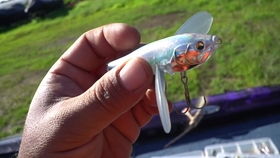Introduction:
Night fishing, with its serene ambiance and the thrill of catching fish under the moonlit sky, has become a favorite pastime for many anglers. However, mastering the art of night fishing requires a different set of skills, especially when it comes to hook fishing. In this article, we delve into the essential hook fishing techniques that will help you become a proficient night fisherman.
Understanding Night Fishing:
Before we dive into the techniques, it's important to understand that fish behavior changes during the night. Many fish, like bass and catfish, become more active as the sun sets. They use the cover of darkness to feed and are more susceptible to artificial lures. Knowing this, your approach to hook fishing will differ from that during the day.
Choosing the Right Hook:
The first step in successful night fishing is selecting the right hook. Here are some tips:
- Size: Choose a hook size that matches the bait you are using. Larger hooks are better for larger fish, while smaller hooks are ideal for smaller species.
- Type: For night fishing, a wide-gap hook is usually preferred. This type of hook offers more room for the bait to move freely, which can attract more fish.
- Material: Sturdy, high-carbon steel hooks are durable and less prone to bending or breaking.
Proper Baiting Techniques:
Properly baiting your hook is crucial for night fishing success. Here's how to do it:
- Natural Bait: If you're using natural bait like worms or crickets, thread the hook through the center of the bait so that it can wiggle and move naturally.
- Artificial Lures: When using artificial lures, ensure that the hook is securely attached to the lure and that the bait is presented in a lifelike manner.
- Avoid Overloading: Don't overload your hook with too much bait, as this can make it difficult for the fish to take the bait.
The Art of Casting:
Casting at night requires a different approach due to the reduced visibility. Here are some casting tips:
- Soft Cast: Use a soft cast to avoid spooking fish. This involves gently flicking the rod tip to launch the bait into the water.
- Controlled Movement: Keep the bait moving in a controlled and rhythmic manner. This mimicry of natural prey can trigger strikes.
- Adjust for Wind: Be mindful of the wind direction and strength. Adjust your casting technique accordingly to keep the bait in the strike zone.
Patience and Observation:
Night fishing requires patience and keen observation. Here's what to keep in mind:
- Wait for Strikes: Fish may take longer to bite at night, so be patient. Don't get discouraged if you don't get immediate bites.
- Observe the Water: Pay attention to the water's surface. Fish often make subtle movements that can indicate a strike.
- Listen: Sometimes, you might hear the telltale sound of a fish taking your bait. Be prepared to set the hook quickly.
Setting the Hook:
When a fish strikes, the key is to set the hook quickly and firmly. Here's how:

- React Instantly: As soon as you feel a tap or pull on the line, react immediately. The faster you set the hook, the better your chances of landing the fish.
- Use the Reel: If the fish is pulling hard, use the reel to add tension to the line. This can help you control the fish and prevent it from escaping.
Landing the Fish:
Once you've set the hook and the fish is on the line, it's time to land it:
- Stay Calm: Keep calm and maintain control of the fish. Avoid sudden movements or pulling too hard, as this can stress the fish.
- Guide the Fish: Guide the fish towards the boat or shore. Use the rod to steer the fish and avoid obstacles.
- Handle with Care: Once you've brought the fish close to the boat, handle it gently and release it if it's too small or if you prefer not to keep it.
Conclusion:
Night fishing offers a unique and rewarding experience, but it requires a different set of hook fishing techniques. By understanding fish behavior at night, choosing the right gear, and mastering the art of casting, baiting, and landing, you'll be well on your way to becoming a proficient night fisherman. Remember to enjoy the experience and respect the fish and the environment. Happy night fishing!












